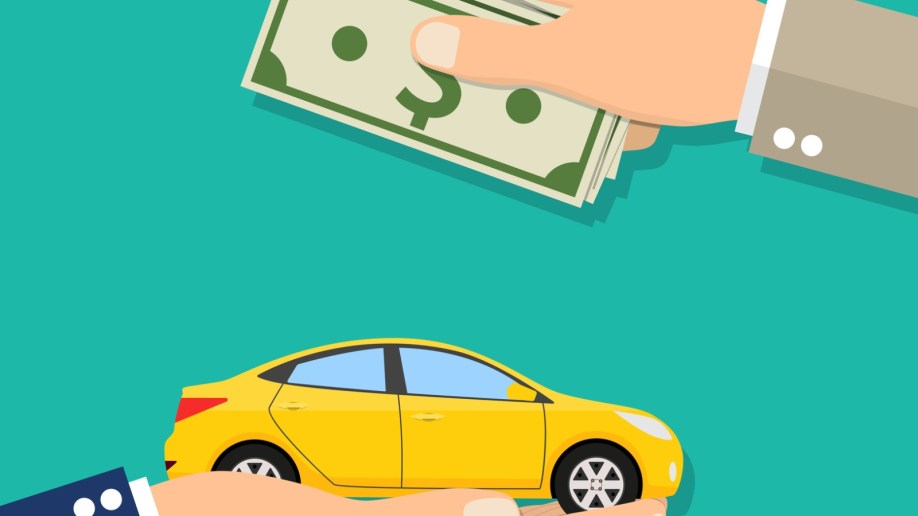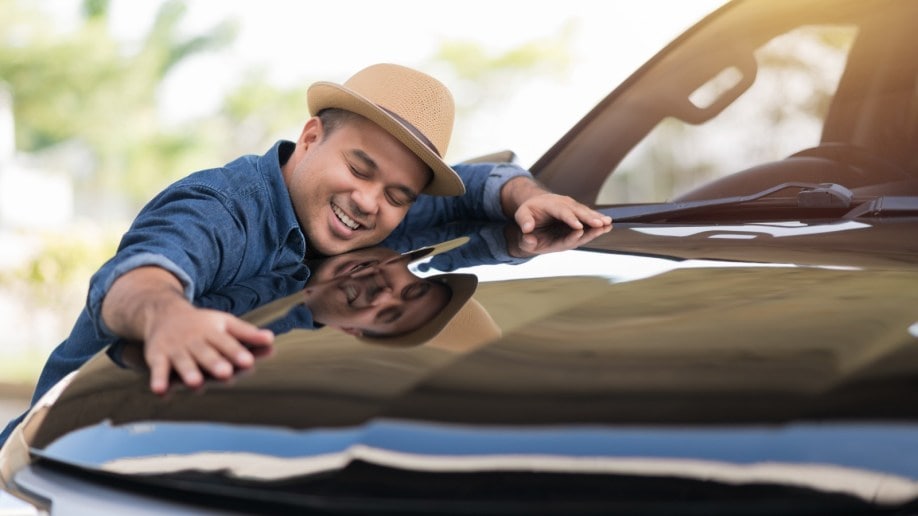
Quick Facts About Paying for a Car With Cash
- Even if you have money available and are able to pay cash for a car, consider all options for what’s best for your financial situation.
- Dealers encourage financing because they may benefit when buyers get loans from automakers’ financial arm.
- Negotiate the best price before letting the dealer know whether you’ll use financing or pay cash for your next car.
If you’re shopping for a vehicle, you might wonder if paying cash for a new or used car makes sense. The answer is maybe — there are advantages and drawbacks.
Read on to learn more, but here’s the biggest takeaway: Waiting to tell the dealer is crucial if you decide to pay cash for a car. You might pay more for the vehicle if you mention early in your conversation how you’ll pay.
- Can You Use Cash to Buy a Car?
- Why Dealerships Prefer Financing Over Cash Deals
- 3 Tips When You Pay Cash for a Car
- Pros and Cons of Paying Cash for a Car
- Paying Cash for a Car
Can You Buy a Car With Cash?
Yes, you can use cash to pay for a new or used car. However, when buying a vehicle, the broader meaning is that you won’t be financing an auto loan for the purchase. Instead, you’ll provide a cashier’s check or arrange a wire transfer from your bank. It’s unlikely for a dealership to accept a personal check or credit card as payment for a car on their lot.
Still, even if you can, it doesn’t mean that you should pay cash for a car. There are many factors to consider, and everyone has a different financial situation.
Why Dealerships Prefer Financing Over Cash Deals
But before discussing the pros and cons of using cash for a car, let’s discuss why dealership salespeople don’t always like the word “cash.” For a dealership, a cash sale could mean a lost opportunity to receive commissions on car loans or extras like accessories and an extended warranty.
For example, after a cash buyer negotiates the price of a car, adding accessories and other extras is less likely because those items can significantly increase the purchaser’s bottom line. On the other hand, if the same customer takes on a loan payment through the dealership or the automaker’s financing arm, the extras and accessories would only increase their monthly bill by a small amount. Generally, a dealership makes around 1% of the loan’s value — for example, about $400 commission on a $40,000 loan.
But there are also good reasons to pay cash for your next new or used car. We will cover those reasons in our pros and cons below. In the meantime, remember three critical tips for paying cash before you arrive at a dealer showroom.
3 Tips When You Pay Cash for a Car:
- Don’t tip your hand early. Negotiate the best price you can before the salesperson knows you aren’t financing the purchase.
- Be sure you can afford the outlay of cash. Buy a car that meets your needs, and don’t hand over more money than you can comfortably live without.
- Consider deals or options that come with available finance offers before deciding. The attraction of additional discounts when using dealer financing might outweigh parting with a big chunk of your savings account.
Before shopping for a new car, you must do your homework — sticker price vs. invoice, incentives if applicable, your trade-in value, and loan interest deals.
Calculate what you expect to pay for that new vehicle. Again, don’t tell the salesperson that you plan to pay cash before negotiating. The dealership may boost the car’s price by over $1,000 to make up for the lost profit from not selling accessories or the extended warranty and not handling the loan. An excellent approach is, “I don’t know if I’m going to pay cash or finance this car until I hear all the options.”
Pros and Cons of Paying Cash for a Car

Pros
-
No Interest Payments
Saving on interest can sometimes be thousands of dollars in savings to your bottom line when buying a car in cash. For example, you would pay $10,186 on interest if you financed the purchase of a $48,247 car (the average price for a new car in November 2023, according to Kelley Blue Book) with a 20% down payment at an average interest rate of 9% in, say, Florida with a 6% sales tax over a loan term of 60 months.
-
Spend What You Can Afford
When you pay cash for a new or used car, you’ll likely spend what you can afford and not more. If you are buying a $45,000 SUV, of course, you can bring shopping bags filled with $100 bills. However, under federal law, the dealer must tell the IRS of any cash amount that exceeds $10,000. This law requires your name, address, etc., on some paperwork. Just remember, most dealers prefer a cashier’s check for any high-dollar amounts if you’re planning to use some cash.
-
Own the Car Outright
Once you purchase the vehicle with cash from your bank account, it’s entirely yours and frees up your other — and future — cash and earnings for other things. No debts accumulated.
RELATED: Consider our Private Seller Exchange Marketplace when buying a car peer-to-peer.
Cons
-
Limited Selection
It is indeed a good feeling to pay cash for a car, but your cash resources might not be enough to purchase the car or truck that fits your needs. That is where a car loan might be the better option, giving you a more comprehensive selection of vehicles from which to choose.
-
Missed Opportunity for Incentives
Manufacturers often offer buyers with stellar credit scores lower interest rates and sometimes zero interest on a new vehicle. Dealers might offer significant rebates and incentives if the buyer finances the car through an institution tied to the automaker. Skipping this offer could be a missed opportunity.
Tip: In most cases, you can pay off a loan without penalty as soon as the lender sets up your account. So, if you qualify for a loan and are eligible for incentives, you might consider taking advantage of those savings, knowing that you’ll pay off the loan balance in a few weeks. It is crucial that you read and understand the lender’s terms and conditions before considering this tactic.
-
Need More Used Vehicle Repairs
If you pay cash for a used car, make sure you have enough money set aside to handle unexpected repairs and routine maintenance.
-
Limited Financially
Most car shoppers can’t comfortably pull tens of thousands of dollars from their bank accounts. Some buyers live paycheck to paycheck to pay bills or face other financial obligations that prohibit large cash transactions. If one is available, does it make sense to use a retirement account savings or a rainy day fund to pay cash for a vehicle? Absolutely not. Never overextend your budget for a car.
-
Reduced Opportunities
When you take cash out of your accounts to purchase a car, you reduce your potential investment opportunities in stocks, mutual funds, etc. A loan might make more sense to save your cash for investments. Remember that a new car’s value depreciates as soon as you buy it.
-
Not Building Your Credit History
You aren’t adding to your credit history when paying with cash to buy a new or used car, nor adding to a good credit score. Building solid credit could be necessary if you plan to purchase or refinance a home or other big-ticket purchase requiring a credit check and verifiable credit history. Financing through a bank or dealership is one way to demonstrate you are a good borrower or increase your weak credit score.
Paying Cash For a Car
Weigh your options when deciding whether to use cash to pay for a new or used car or to finance your purchase and spread monthly payments over several years. Each method has benefits and drawbacks, but the primary consideration is your personal finances and whether you can — or want to — handle a substantial withdrawal from your savings for another vehicle.
Related Car Buying Stories
- How to Buy a Used Car in 10 Steps
- Hidden Finance Costs When Buying a Used Car
- How to Buy a Car Online
Editor’s Note: This article has been updated since its original publication. Rick Kranz contributed to the report.











